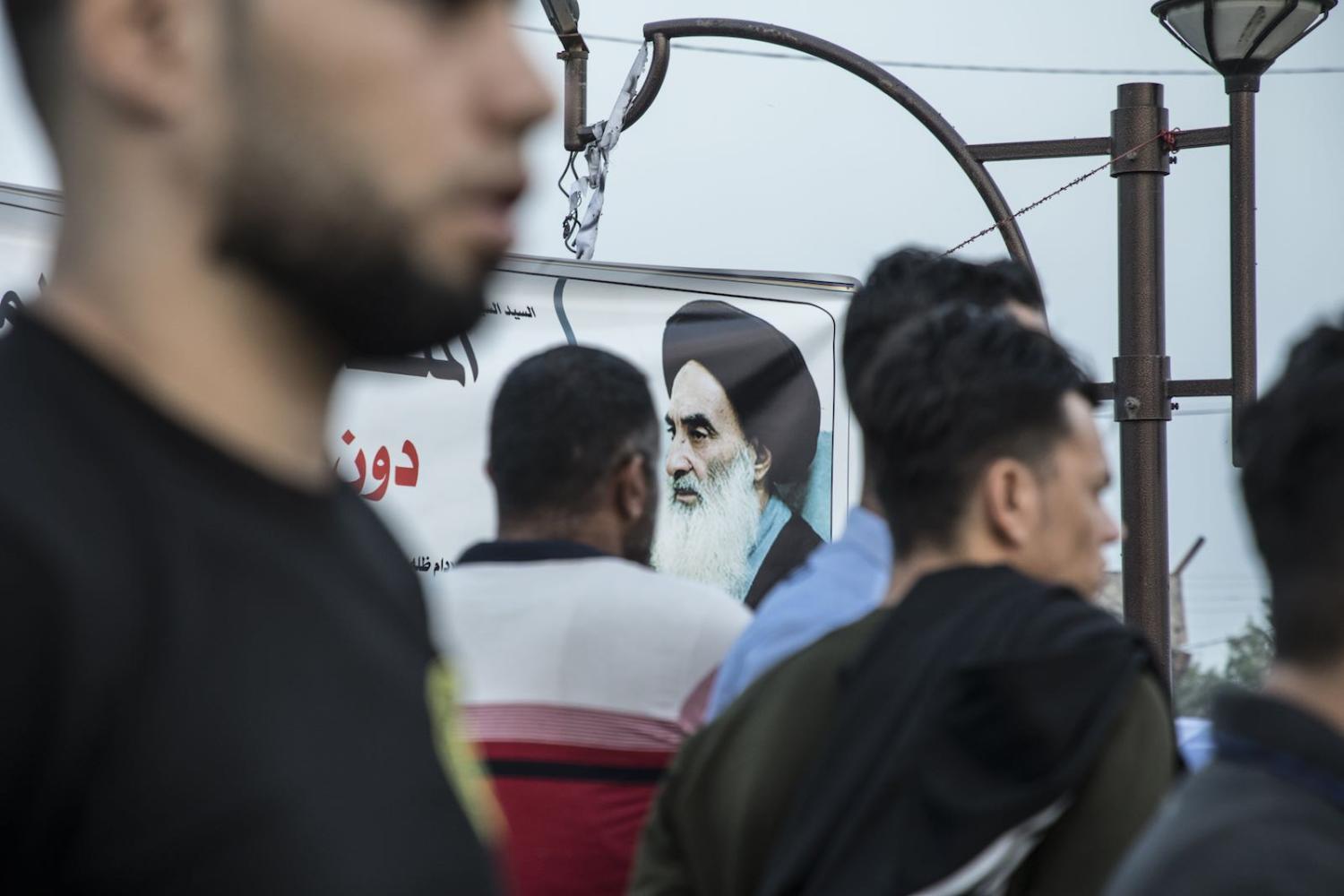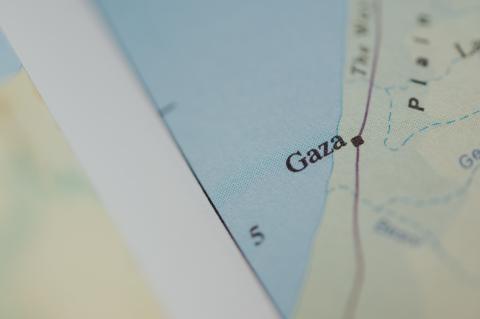Grand Ayatollah Ali al-Sistani has been a consistently powerful and decisive force in Iraq’s ongoing political transition. His role in Iraq has been closely observed over the years by those seeking to understand Iraq and to divine its future political fortunes.
Representing the “quietist” school of Shia Islam, the 89-year-old senior Najafi cleric has eschewed a formal role in government. In so doing, he has served as a foil to the Iranian model of clerical leadership – vilayet-i faqih, or rule by Islamic jurists. Yet despite Sistani’s seemingly hands-off approach, Iraq has come to depend on his moral authority and national leadership. As the country has lurched from crisis to crisis, and corrupt government to inept government, Sistani has played a decisive and unifying role at each moment of transition.
Every administration formed since the 2003 US invasion that removed the regime of Saddam Hussein has sought Sistani’s blessing and approval. During times of crisis – of which there have been many in post-Baathist Iraq – Sistani has consistently called for national unity, compromise, and for elected representatives to heed the will of the people.
Things have not gone well in the past when Sistani has withdrawn from politics. Polarising figures like Nouri al-Maliki and Moqtada al-Sadr have filled in the space, along with greater Iranian influence.
In 2004, his approval of the initial transition government brought fractious and sceptical Shia majority groups together behind the Coalition Provisional Authority’s plan for transferring power to an interim body, instead of immediately holding direct elections to choose Iraq’s next permanent government. And his insistence that elections take place very soon after and an elected body write Iraq’s permanent constitution prevailed.
During Iraq’s often tortured post-election government formation process, every subsequent prime minister needed Sistani’s seal of approval. Sistani has frequently been the one prodding various Shia political factions to accept compromise candidates. Sistani’s role after the most recent elections was the reason Adel Abdul Mahdi, a respected technocrat lacking a political constituency of his own, became the prime minister.
When al Qaeda in Iraq fomented sectarian civil conflict with their brutal mass-casualty attacks against Shia places of worship, it was Sistani who counselled his Shia followers against revenge.
However, when the Islamic State was rapidly gaining territory in 2014, Sistani mobilised the country with a call to arms and tacitly endorsed the mobilisation of extra-judicial militias, the popular mobilisation units (PMUs), to bolster the crumbling Iraqi state forces.
In 2016, and in the years prior and since, Sistani was able to keep Moqtada al-Sadr in check, as Sadr roused his supporters to hold mass demonstrations to revive his political leadership prospects. Although the Sadrists levelled the same gripes against the Iraqi political elite as the current crop of demonstrators, Sadr himself was an unpredictable and potentially destabilising figure.
During this current moment of crisis, in which convulsive protests have led to Mahdi’s resignation and plunged Iraq once again into a state of uncertainty, Sistani has firmly come out on the side of the protesters. The protesters are fighting a political class that has maintained its power and privileges through corruption and the exploitation of a system informally based on sectarian quotas. They want to break the entrenched political factions tied to Iran, whom they see as largely responsible for the rot in the Iraqi political system, and they want dignity and economic opportunity.
In a recent Friday sermon, his preferred mode of mass communication, Sistani echoed these demands and called for a new electoral law that “ does not give an unfair advantage to current political parties, but gives a real opportunity to change the forces that have ruled the country”, and he subsequently approved of Mahdi’s resignation.
The tipping point for Sistani came when militias tied to elements of the Iraqi government responded to the unrest by killing hundreds of protesters, and the government instituted a harsh crackdown on freedom of information and press freedom, cutting off the internet at great cost to the economy during the protests.

Sistani has grown impatient with the Iraqi political class. But he also bears some responsibility for where Iraq is today. Sistani may well prefer to remain a quietist cleric, reclusive in his modest home in Najaf, communicating via intermediaries, but it’s clear his role in post-Saddam Iraq has been anything but retiring or modest.
He acquiesced to the informal sectarian quota system that underpins Iraq’s parliamentary system, the removal of which is one of the protesters’ key demands.
His call to arms proliferated the PMUs, which gave room for Iranian Revolutionary Guard–sponsored militias to dominate their command. Iranian-backed PMUs were also responsible for unspeakable sectarian violence in Iraq against Sunni Arabs. Despite his clerical seniority and moral authority, Sistani’s understated approach is one factor in explaining how Iran’s influence in Iraq has been allowed to proliferate.
And despite his calls for unity after the al-Askari Shrine bombing, he ultimately could not contain Iraq’s civil war that followed.
Sistani intuitively understands his future moral authority is it at risk if he wades any deeper into the current political crisis. Although he has called for comprehensive constitutional reforms as the only means to address Iraq’s ills, this time around Sistani has refused to bless or veto any interim or permanent prime minister or offer further guidance to parliament on how it should heed the protesters calls for wholesale changes.
Sistani’s not-so-hidden hand has guided Iraq’s tumultuous transition since 2003, but now he may be taking it away just when Iraq needs it most. Things have not gone well in the past when Sistani has withdrawn from politics. Polarising figures like Nouri al-Maliki and Moqtada al-Sadr have filled in the space, along with greater Iranian influence.
The Grand Ayatollah may wish to retreat once again, in an effort to protect his legitimacy, believing he his has done all he could and should do in furthering the will of the people. But Sistani has always had a role to play, and he cannot pretend otherwise at this fateful junction.

